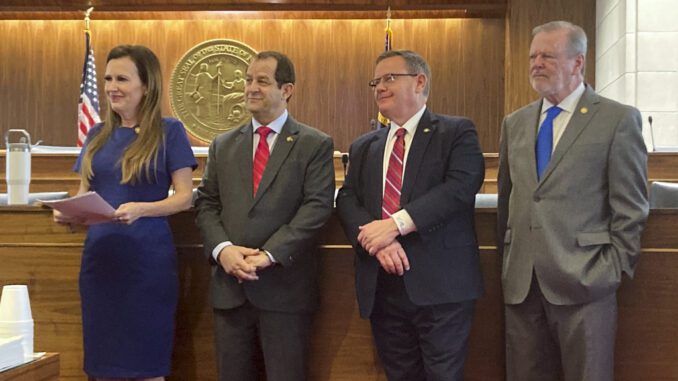
There’s hope for North Carolina parents of school-age children.
State senators have filed Senate Bill 406, “Choose Your School, Choose Your Future,” to overhaul North Carolina’s school choice system and provide more families with money from the state’s Opportunity Scholarship grant program. In the House, a similar measure, HB 823, has been filed.
For years, parents have faced increasing concerns about their children’s education. Children have been forced into schools that are failing by state education standards. Other children are sent to schools, many in low-income areas, that are not a safe environment for learning. Still other parents are concerned about what their children are being taught in the classroom and feel government is not listening to their concerns.
How will legislation change the Opportunity Scholarship program?
Under current law, a family must earn below a certain income to qualify for a grant. SB 406 makes all North Carolina families eligible for an Opportunity Scholarship. It removes income eligibility requirements, instead awarding scholarships on a sliding scale — opening up possibilities for more families, based on household income, to send their children to a better learning environment in a private K-12 school. Here’s how it would work (all in FY 2023-24):
- Children in households with an income at or below the amount required to qualify for free and reduced lunch — $55,500 for a family of four — would receive up to 100% of the average state per-pupil allocation from the prior fiscal year, for a maximum award of $7,213.
- Children in households with incomes from 100% to 200% of the free and reduced lunch threshold — maximum $111,000 for a family of four — would be eligible for a maximum award of 90% of the average state per-pupil allocation from the prior fiscal year, for a maximum award of $6,492.
- Children in households with an income from 200% to 450% of the free and reduced lunch threshold — maximum $249,750 for a family of four — would be eligible for a maximum award of 60% of the average state per-pupil allocation from the prior fiscal year, for a maximum award of $4,328.
- All other students would be eligible for a maximum award of 45% of the average state per-pupil allocation from the prior fiscal year, for a maximum award of $3,246.
Opportunity Scholarship grants were introduced in North Carolina in 2013 to offer help to families in the worst educational situations. The program was successful, so legislative leaders added more money for grants to include more and more families.
The case for school choice is not hard. It helps level the playing field for families looking for the best opportunities for their children. It is based on the premise that parents, not government bureaucrats, know what’s best for their children. It provides freedom for families who feel their child is trapped in a dangerous or dead-end school district.
For years, Gov. Roy Cooper has opposed Opportunity Scholarships. His own budget proposals have advocated abolishing the entire program. You can be sure his NCAE teacher’s union allies will be in lockstep with the governor — just like when they pushed him to keep schools closed over parents’ wishes during COVID.
Liberal leaders who oppose the expansion of Opportunity Scholarships should know they’ll be swimming upstream with North Carolina voters. A recent poll conducted by the Carolina Partnership for Reform found that 68% of all North Carolinians supported expanding the Opportunity Scholarship program, with 50% of registered Democrats in support.
That same poll tested North Carolina voters’ concerns over what is being taught in schools. When asked whether they agreed or disagreed that “political correctness and wokeness have gone too far in our state’s public Kindergarten through 12th grade schools,” 64% agreed, including 89% of Republicans and 55% of unaffiliated voters.
Clearly, North Carolinians are concerned about our children’s education. Which is why parents are exploring school choice for their children — through private schools, charter schools, religious schools, magnets, home-schooling or seeking better public schools.
The common denominator? It is clear parents want the best education for their children and to not let decisions about where they are taught, or what they’re taught, be controlled and dictated by education bureaucrats.
If you agree that the Opportunity Scholarship program should be expanded as outlined in House Bill 823 and Senate Bill 406, please contact your state legislators and let them know.
Bob Rosser is executive director of The Carolina Partnership for Reform.
